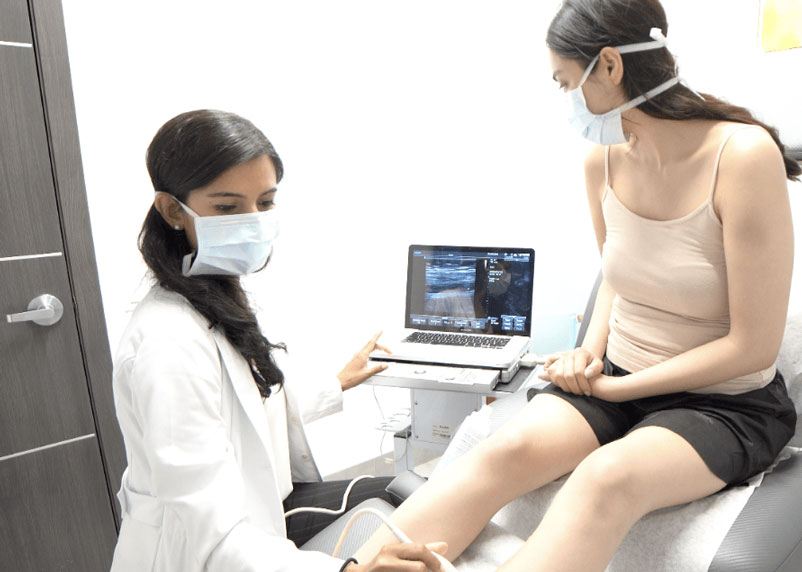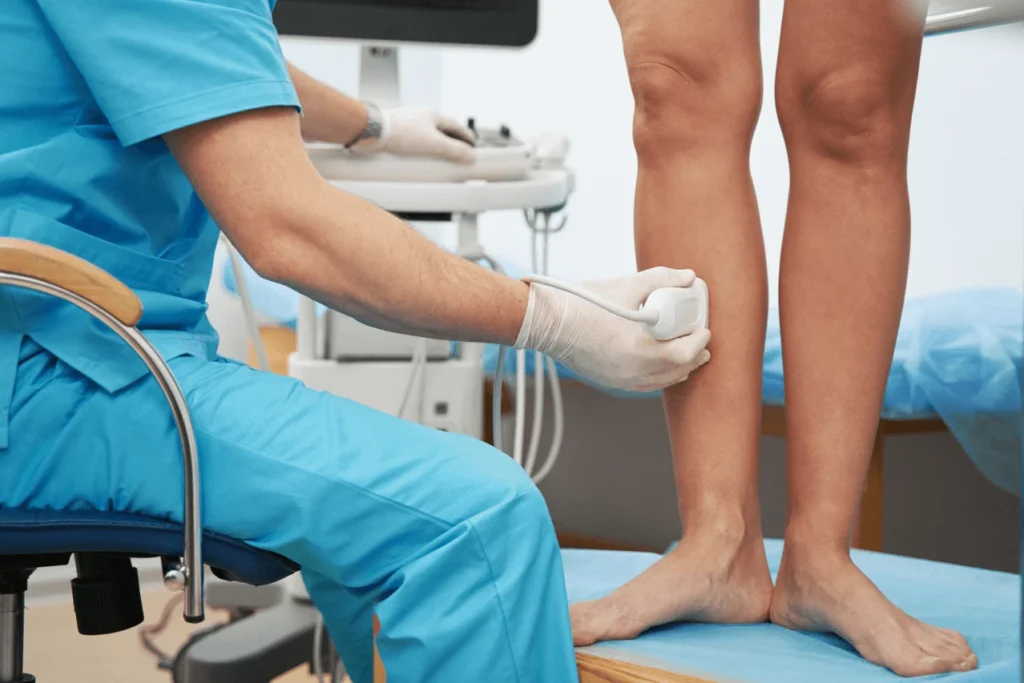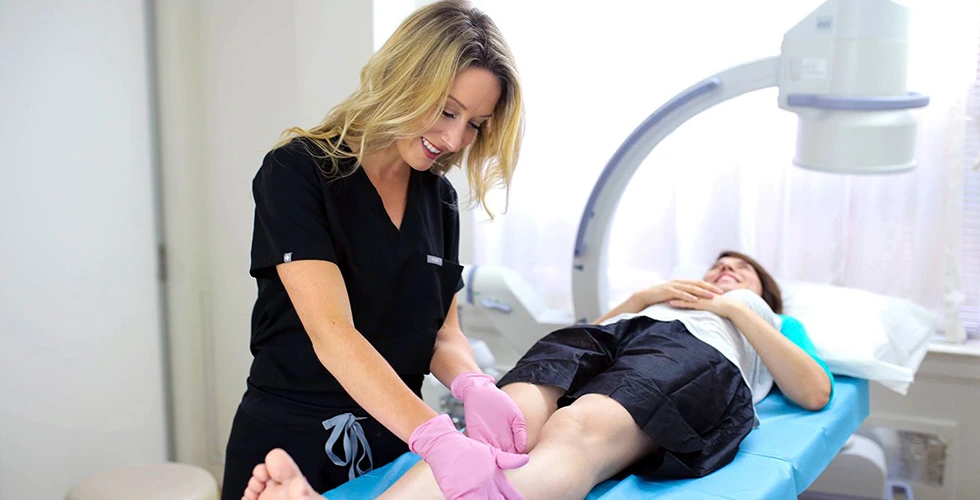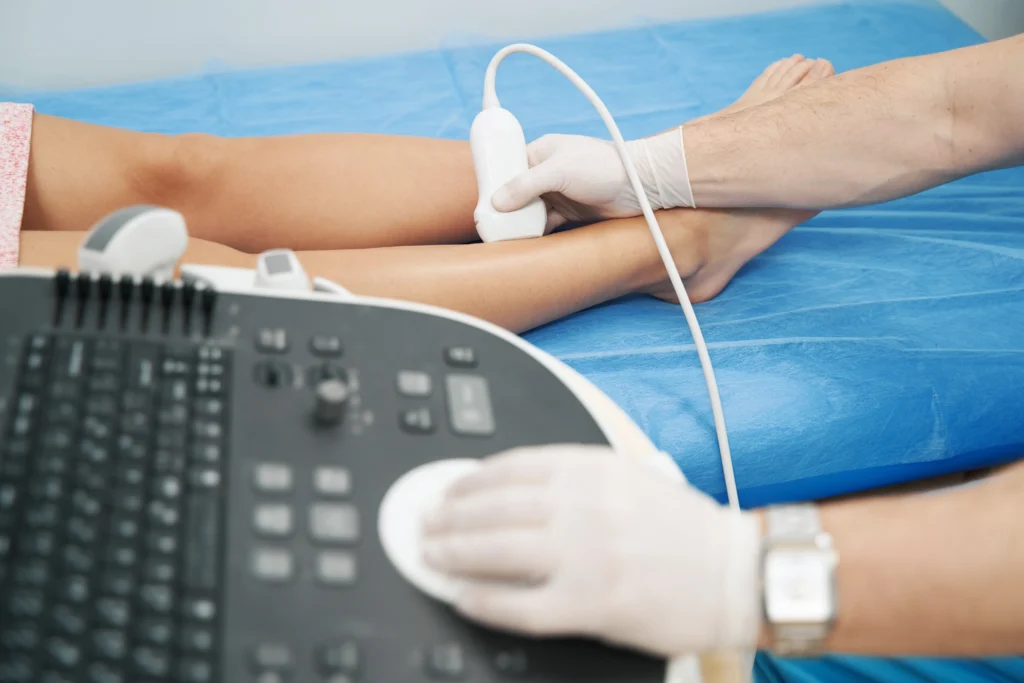What doctor treats chronic venous insufficiency?
Chronic venous insufficiency (CVI) is a common condition affecting the veins in the lower extremities, causing them to become weak and inefficient at returning blood to the heart. This can lead to various symptoms, such as swelling, pain, and skin changes in the affected area. If left untreated, CVI can lead to more serious complications, such as blood clots and ulceration. It is important to seek treatment for CVI to prevent these complications and improve quality of life.
But who should you see for treatment? This article explores the type of doctor specializing in the treatment of veins and provides tips on finding the best board-certified vein doctors.
What is chronic venous insufficiency (CVI)?
Chronic venous insufficiency is when the veins in the legs become damaged or weakened, making it difficult for blood to flow back to the heart. This can cause a range of symptoms, including swelling, pain, fatigue, and skin changes in the affected area. CVI can also lead to varicose veins, which are enlarged and twisted veins that often appear blue or purple and may be visible under the skin.
Some of the causes of CVI include blood clots, obesity, pregnancy, and occupations that require prolonged standing. CVI can also be caused by conditions such as DVT (deep vein thrombosis) or previous vein surgery.

What do you call a doctor who specializes in veins?
A doctor who specializes in veins is called a phlebologist. Phlebologists are medical doctors who have received specialized training in diagnosing and treating venous disorders such as CVI. They are qualified to perform various procedures to treat CVI, including sclerotherapy, laser ablation, and VenaSeal.
What kind of training do phlebologists receive?
Phlebologists typically receive extensive training in the diagnosis and treatment of venous disorders. This includes coursework in anatomy, physiology, and pathology of the veins and training in diagnostic techniques, such as duplex ultrasound imaging.
Phlebologists may also receive additional training in interventional procedures, such as sclerotherapy and vein ablation. These procedures treat CVI by closing or removing damaged veins to redirect blood flow to healthier veins. After medical school, phlebologists typically complete a residency program in a related specialty, such as vascular surgery or internal medicine. They may then pursue additional fellowship training in phlebology to gain expertise in diagnosing and treating venous disorders.
How can I find the best board-certified vein doctors?
If you are experiencing chronic venous insufficiency (CVI) symptoms or have been diagnosed, it is important to seek treatment from a qualified phlebologist. But with so many doctors to choose from, how can you find the best board-certified vein doctors? Here are some tips to help you find the right phlebologist.
- Check their credentials: Make sure the phlebologist you are considering is board-certified in phlebology. This means they have completed the necessary training and passed a rigorous exam to demonstrate their expertise in the field. Your vein doctor should be board-certified by the American Board of Venous and Lymphatic Medicine.
- Look for experience: Consider the phlebologist’s experience in treating CVI. A phlebologist who has treated many patients with CVI will likely have a deeper understanding of the condition and be better equipped to provide effective treatment.
- Read online reviews: Check online reviews and ratings from other patients to get an idea of the phlebologist’s reputation and level of care. Websites such as Google and Real Self can be useful for finding patient reviews of local doctors.
- Ask for recommendations: Talk to your primary care doctor or other healthcare providers for recommendations on phlebologists in your area. They may have insights into which doctors have a good reputation and provide high-quality care.
- Consider location and convenience: Consider the location and convenience of the phlebologist’s office when choosing a doctor. A phlebologist near your home or work may be more convenient for you to visit for follow-up appointments.
- Get a second opinion: If you are unsure about the treatment plan recommended by a phlebologist, especially if they recommend complex surgical procedures, consider seeking a second opinion from another board-certified phlebologist. This can help you make an informed decision about your treatment options.
By considering these factors, you can increase your chances of finding a qualified and experienced phlebologist who can provide the best care for your CVI. Don’t be afraid to ask questions, and do your research to find a doctor who is right for you.
Where can I get my varicose veins removed?
At Maryland Vein Clinics, you can expect comprehensive care from experienced and board-certified vein doctors. The team at Maryland Vein Clinics is dedicated to providing the highest quality of care and helping patients achieve the best possible outcomes.
Several treatment options are available at Maryland Vein Clinics for removing varicose veins, including sclerotherapy, laser ablation, and ambulatory phlebectomy. During your consultation, the vein doctor will assess your condition and recommend the most appropriate treatment. In addition to varicose vein removal, we offer treatment for other venous disorders, such as spider veins, chronic venous insufficiency, and venous ulcers.
Our team is committed to helping patients improve their quality of life and reduce the risk of complications from venous disorders. If you are considering varicose vein removal, we recommend visiting Maryland Vein Clinics for expert care and personalized treatment options. Our vein clinic is at 10215 Fernwood Rd, Suite 301, Bethesda. You can schedule a consultation by calling the office or booking online.





